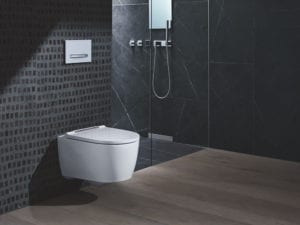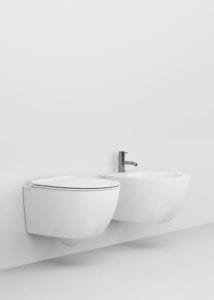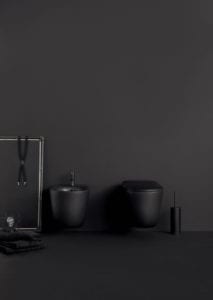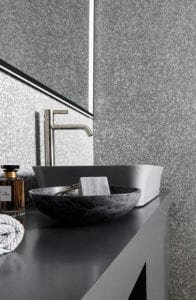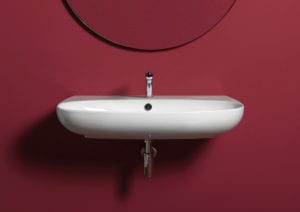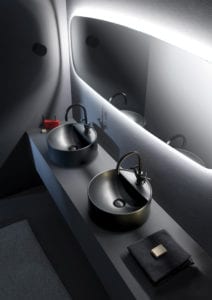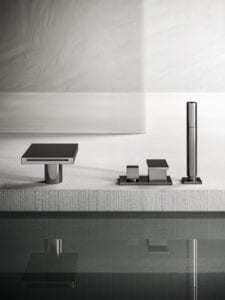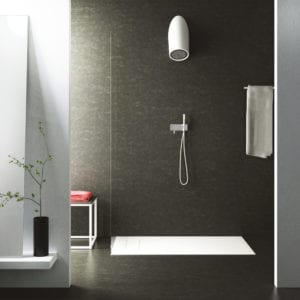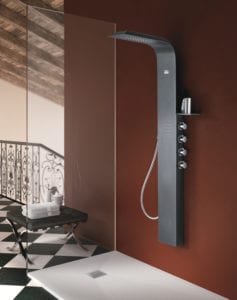Products Trends


The bathroom and the environment, an important relationship | by Elena Cattaneo
In recent years, sustainability and care for the environment have become frequently-used catchphrases, but they risk remaining empty words if we fail to back them up with concrete actions. At the same time, we are aware how important they are for maintaining a harmonious coexistence between humans and nature. To make an effective contribution to protection of the environment, we can make small changes to our behaviour in our daily lives or, even more importantly, big changes to our long-term decisions. When renovating our homes, for example, we can opt for furnishings such as bathroom fixtures that have a low impact in terms of the use of natural resources. This is why, before we choose one product rather than another, it is worth doing some research into the different companies in the market and their product characteristics to determine whether their production technology is designed with a view to lower environmental impact. As is to be expected, there is no single, simple way of overcoming problems of pollution and the inexorable depletion of environmental resources. Nonetheless manufacturers have plenty of opportunities to search for and introduce appropriate solutions according to their supply chains, habitats, corporate philosophies and resources.
Sustainability begins upstream
A number of companies have upgraded their production chains or physically transformed their plants over the years with a view to improving their eco-sustainability. During building renovation and the management of a manufacturing process, the key issues that need to be addressed are energy saving, the reduction of emissions, the elimination (or at least reduction) of product waste and the adoption and reuse of locally-sourced raw materials. Some companies have set up systems for recycling process water so that it can be filtered and then fed back into the production cycle. Collaboration with local artisans is another green choice because it means making the best use of local resources and avoiding expensive and polluting transportation of materials.
Forward-looking products
Individual products can also contribute to environmental sustainability through a suitable choice of materials and technology. In the world of ceramics, for example, it is interesting to find out more about the ways in which companies have adapted their production processes, the research they have carried out into materials and the methods they use to recycle ceramic waste. Certifications serve to define the characteristics of a product and are the main tool used by companies to inform consumers about their commitment to sustainable growth in terms of the environment and ethics. Ceramics of Italy is the institutional trademark designed to safeguard and promote awareness of the tradition, quality, innovation and creativity of companies with 100% Italian-made products. Further certifications include ISO 9001-2015 for production process quality, voluntary ISO 14001-2015 certification demonstrating that a company has adopted an appropriate, sustainable and legally-compliant environmental system, and OHSAS 18001 (Occupational Health and Safety Assessment Series) for the health and safety of employees.
All-round beauty
Shower enclosure producers can choose recycled and recyclable glass and aluminium for their production processes. They can also perform a final treatment to ensure that their products are extremely easy to clean without the need for excessive quantities of cleaning agents, and even make them resistant to limescale damage. And last but not least, water savings can be achieved through the use of increasingly sophisticated technology in mixer taps and toilet flush mechanisms.
- 01.
- 02.
- 03.
01. The Geberit One collection by Geberit is an integrated bathroom solution that includes the washbasin, WC, bidet, shower and furnishing accessories. The wall-hung WC in particular features TurboFlush technology designed to save water and the Keratect surface treatment which reduces the need to use polluting cleaning products.
02. The Senzabrida® rimless WC and 48 cm wall-hung bidet expand the 4All collection by Ceramica Globo, designed to fit harmoniously into any style of bathroom. The 4All WC, like many of the company’s other products, features the new Globo Water Saving system which drastically reduces water wastage with an average combined flush of less than 3 litres.
03. The NoLita line of WCs from Kerasan, equipped with the Norim flush system, meets the need for environmental sustainability. The mechanism cleans the WC pan with a powerful jet of water that is distributed uniformly, quietly and without splashing. The rimless technology also facilitates cleaning, ensuring that the WC remains functional for a longer period of time.
- 04.
- 05.
- 06.
04. The Joy collection of mixer taps from Ideal Standard stands out for its slim, timeless shape and has been available in a chrome plated version since April 2020. Joy adapts to any kind of ceramic product and includes an eco-friendly 5 litre per minute aerator that reduces water consumption. The company has long been committed to reducing waste and introduced the first ceramic cartridge back in 1968.
05. A 100% Italian-made collection, Vignoni by Simas has an essential design that is reflected in the extremely thin edge of the washbasins, even in the larger versions. The WC is designed to save water and has a flush of just 4.5 litres. It also features an adjustable outlet to facilitate installation in renovation projects and an ultra-thin lid with soft-close and quick-release hinges.
06. Ceramica Flaminia Cuses colour as an intrinsic component of its projects, and its new intense matt black Carbone version introduces a powerful, magnetic presence into the bathroom. The production process water is treated and purified, then fed back into the manufacturing cycle.
- 07.
- 08.
- 09.
07. Created by Angeletti Ruzza Design for Cristina Rubinetterie, the Tabula mixer tap is inspired by the austere beauty and sense of lightness typical of Japanese aesthetics. To achieve this effect, the designers adopted a subtractive approach and eliminated the neck normally attached to the lever. Tabula is equipped with a 5 litre/minute water-saving aerator.
08. The Estro soft shower head features a diagonal water jet designed to optimise the water flow. It was designed by ZeTae Studio for Relax Design and is made of Luxolid® solid surface in a range of 16 colours to allow it to blend in perfectly with any bathroom design.
09. The Lama shower column from Geromin stands out for its essential design and is coated with Alulife®, a material made from 100% recycled aluminium. Innovative technologies are used to give the metal a complex, iridescent texture that is pleasing to both the eye and the touch.
October 2020




